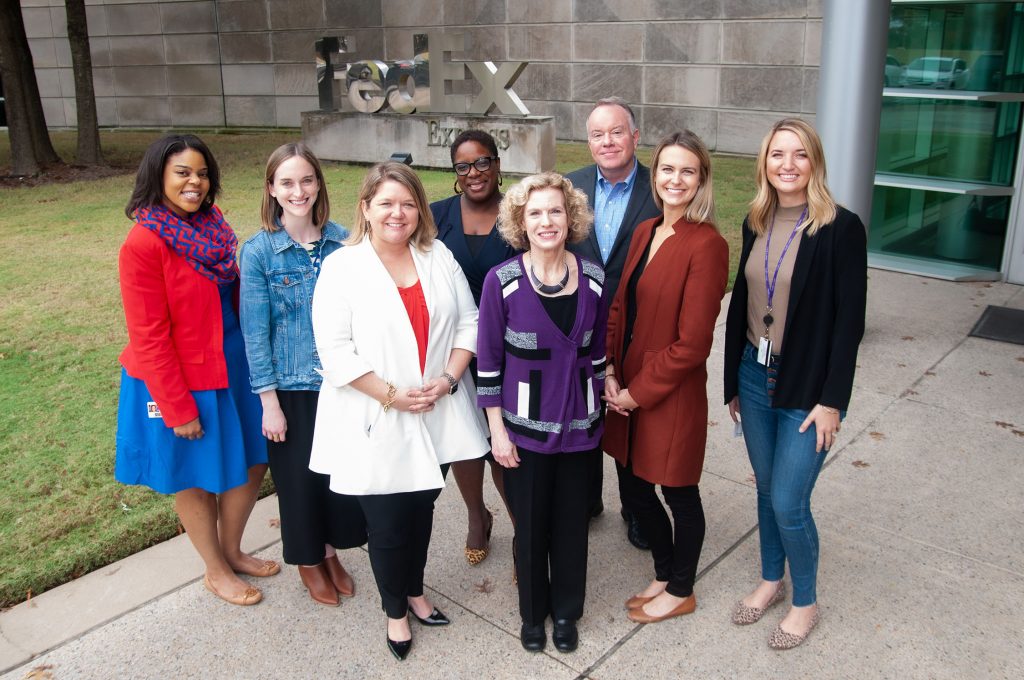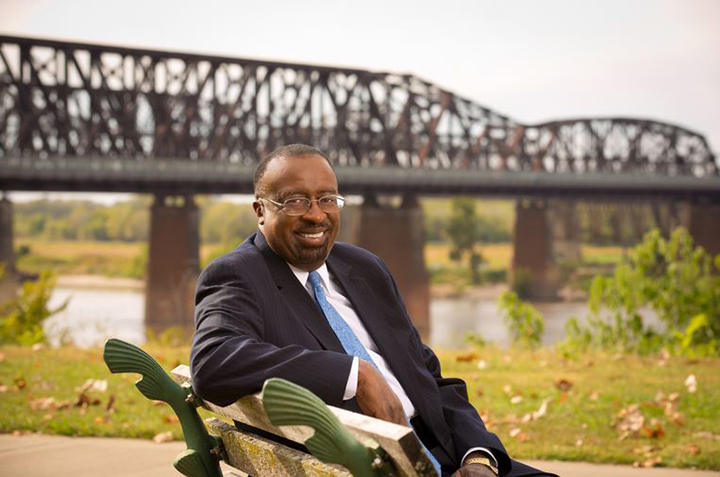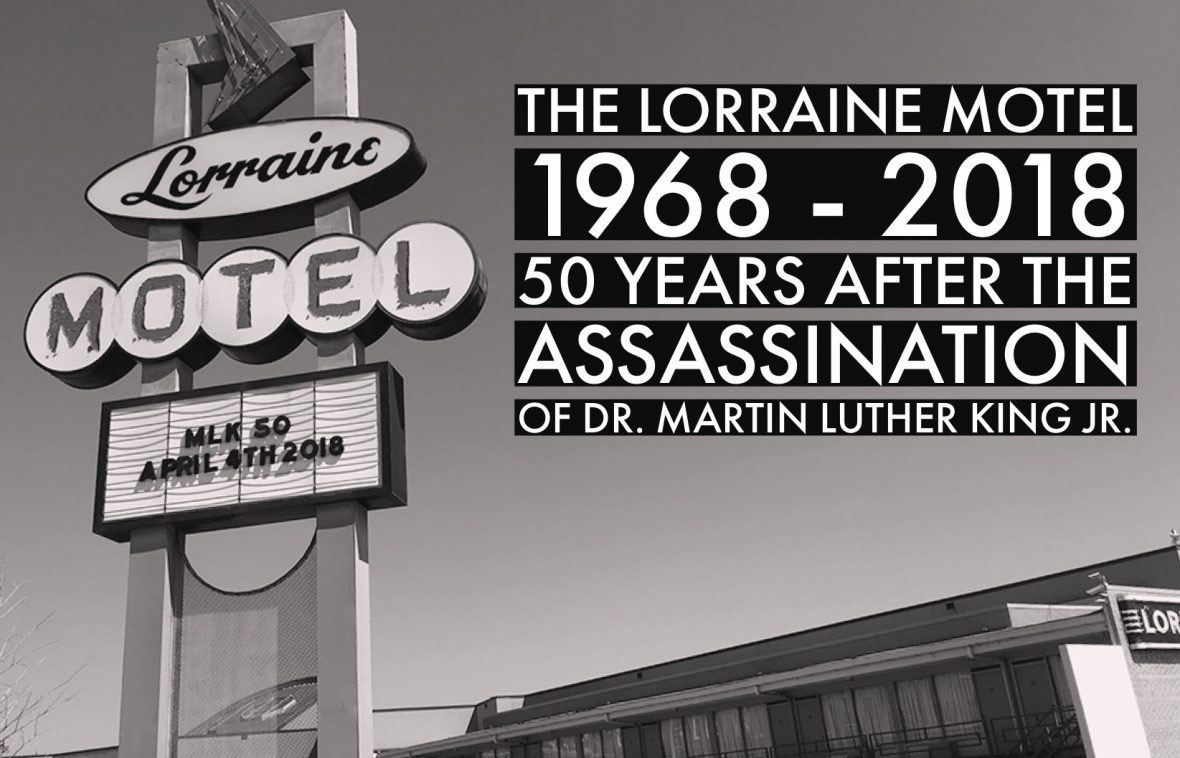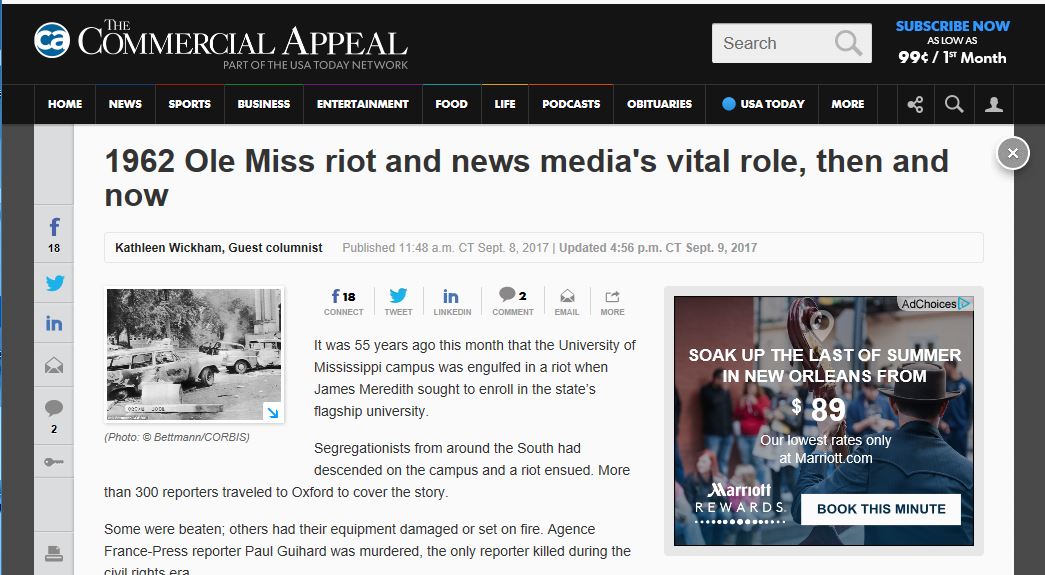Malia Carothers, 23, is forging a path in the journalism world as a news producer working for WMC Action News 5 in Memphis. Carothers joined the broadcast journalism department in college and graduated from the University of Mississippi.
Since college, Carothers has worked as an associate producer for WTVA news and is now one of the producers for Channel 5 News. She lived in Mississippi all her life until moving to Memphis.
Q: What made you want to pursue a career in Broadcast Journalism?
A: I was in the yearbook club in high school. I have always been a media person. What sold me on going to the broadcast program at Ole Miss was that I went to a Future Farmers of America (convention) . . . I made it to nationals with one of my projects. They had a sit-down at this thing to broadcast for one of their channels, or something like that. I was like, “I like this,” so I decided to do journalism. And honesty, I only heard of two colleges at the time that offered journalism, and it was Mississippi State and Ole Miss, and between the two, Ole Miss had the better program.

Q: How did you become a producer. Had it always been in your plans to be a producer for news stations?
A: Well, honestly, (it’s) all a funny story on how I am a producer now. I just fell into this spot. I’m not going to lie to you; I just fell into it. So when I tell people that no one believes me, it’s like they say, “You’re lying, and this is what you are supposed to be doing.” But I asked Dean Jennifer Simmons of the School of Journalism at Ole Miss if she knew of any video production internships because we need internships for our program. I needed an internship, and she thought I was talking about news producing, which was not what I meant. I like editing, and I like documentaries and things of that nature, so I was looking for a video production internship, and I got in touch with Dean Debora Wenger. She mentioned to me about a producing internship with WTVA. I was interviewed for the spot, and based on the writing test that I took for WTVA for my internship, they asked would I like to be an associate producer instead of doing an internship, and I was like, “Yeah, of course. Why wouldn’t I want to do that?”
Q: Do you think being African American has any affect on your job ethic? Do you feel you have to work harder because you are African American?
A: No, I do not. I work for Action News 5 out of Memphis, and there are many black people working here. I don’t feel pressured by the color of my skin. My work ethic speaks for itself.
Q: How do you pick your stories? Do you bring diversity to the stories?
A: Yes, I always liked being around different people. (That) made me a better producer. It helps me stay grounded and neutral to tell the story. I have always talked and hung out with different types of diverse people. So I believe that being open and diverse helps me bring that in my stories. It all depends on what you know and how you can relate to certain stories that makes it a success.
Q: How do you think your productions have improved the quality of Action News 5 television station?
A: Yes, I am a critical and creative design person, so I brought in different visuals for our section. I also rework how the news goes for the news show. In the beginning, the station ranked at three, and now it is at a six, so I doubled the ratings. So I feel like I am making a difference because I bring in many visual elements, which is a big part. After all, your audience does not want to see the same things over and over.
Q: What type of experience do you have with working with the latest or most current news formatting software?
A: At Channel 5, we use a software called ENPS. It is updated regularly, and we normally don’t make changes to it. The station has been using it, and I don’t have to make any changes. So it’s a learned experience, and it doesn’t change. Each station or shop has different software.
Q: What type of changes can you make to scripts to improve your quality of newcasts?
A: Creative writing. The biggest challenge I have right now is creative writing. My writing is good, but for it to hit higher, I believe I need to be a little better at my creative writing to keep my newscast soaring and improving – playing on words and catching people’s eyes with your words, instead of just visual.
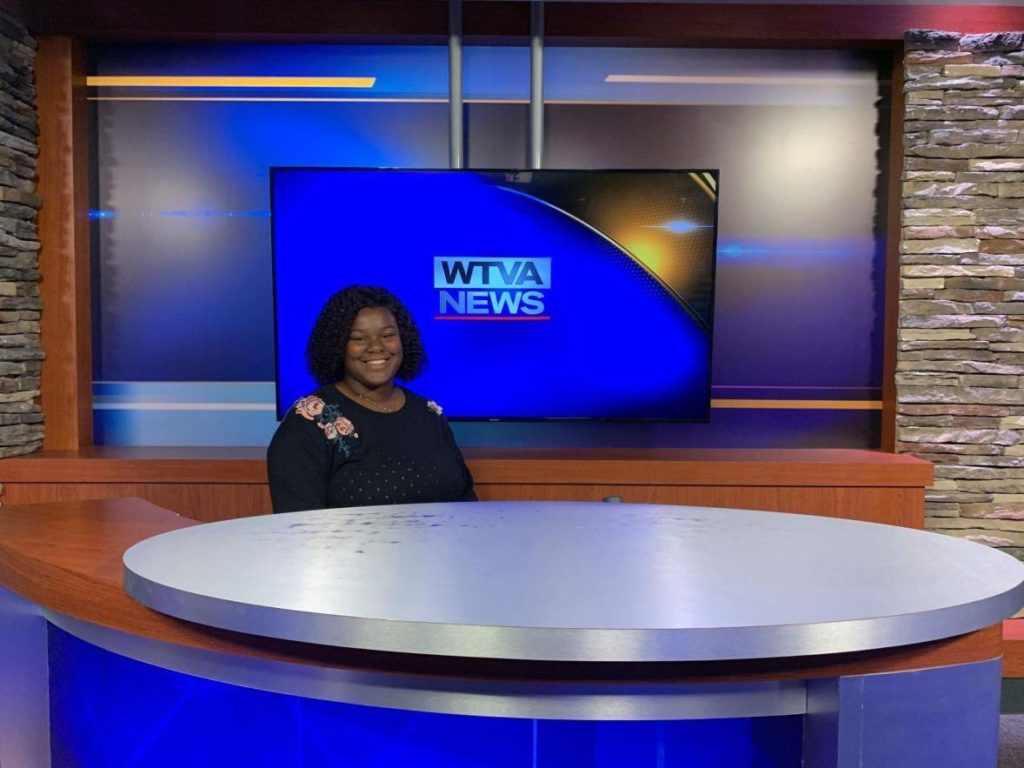
Malia Carothers
Q: Why do you think being the news producer at Action 5 is the right fit for you?
A: I wouldn’t necessarily say it is the right fit for me, but I do enjoy what I am doing. As I said, the job fell in my lap, so I decided to work hard and equip myself with this skill to get a job. I decided to keep working in production because I never really cared much about going out and reporting for one. I mean, I will, but I (would) rather be behind the scenes. Another reason is that you do not make that much money by reporting. So it fits with the skills that I have and what I want to do. I chose production because I like to control things, so being a producer, you have that type of control, and it just fits me better than reporting. I guess I like telling people what to do instead of doing it.
Q: As a producer have you done any stories that have been stressful or affected your life in a certain way?
A: No, not really. But only because I don’t think that I am the type of person who gets impacted or affected by things. I think it is how I grew up. Most things do not change my emotional state. It does to others, but It doesn’t stress me out or affect me.
Q: Where do you see yourself five years from now?
A: Well, my contract is for two years with Action 5. It will end the next year – 2022. I do not plan on staying. I have lived in Oxford all my life, and Memphis is only a skip and a hop away from Oxford, so I plan to move away. I want to experience other places, and I want to go beyond Memphis. I don’t plan to keep producing, but I would still like to be a regular producer if I do. I’m getting my master’s in marketing communications right now, and I want to get into marketing to become a business consultant to help people grow their business. Being a producer is equipping me to be prepared for my future business career. I want to be the best me.
Q: Do you have any advice for future journalism students who want to become producers?
A: Honestly, it’s God how I landed here. That’s all I can say. And even if I don’t like the job, I believe it is my drive – my drive to do my best and to work hard, that has brought me to where I am now. I always strive to get better even if I don’t like the job, and I am going to do my best to be the best. My main point is that you need to be a journalist before anything. When it comes to writing a story, whether you’re a reporter or a producer, I feel like you should never focus on any trends. If you want to be in this field, talk to more people, meet more people, doing this will help you to be more diverse, and write. You have to learn how to write because you will need the experience.
This story was written by student Nikki Marzette.



